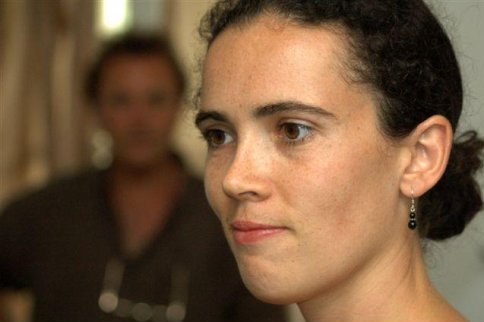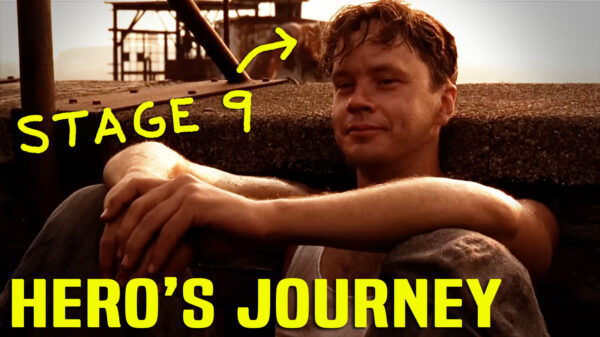TAKING YOUR CONTENT GLOCAL

LUCI TEMPLE
WRITER/DIRECTOR/PRODUCER/MARKETEER/BLOGGER
We frequently hold the conflicting desire of wanting our content to be globally relevant, yet to also be authentic on a local level. ‘International’ stories are meant to bridge this gap, consisting of a core theme or idea that is meant to unite audiences regardless of nationality – however, this approach doesn’t respect or celebrate the nuances of cultural differences. I’ve been thinking about ways to make content on a ‘glocal’ level (surprisingly enough, that is a real word).
A couple months back I wrote a hypothetical case study looking at ways that a property distributed internationally could create local chapters of content in each territory to make it more relevant to local audiences. I’ve been thinking more on this, particularly in light of transmedia and alternate reality game projects, where real time audience participation is encouraged.
Forgive me while I initially explain this from the point of view of an Australian.
In Australia we consume a lot of quality overseas content, which we enjoy, but we also need to see our own Australian characters, who share our values, sense of humour, accents, slang, and spelling 😉 However, the economic reality is that Australia has a small population of just 21 million, so it’s not financially viable for us to create big budget productions, particularly not for niche audiences. This results in most of our local content being smaller stories, often at an inferior quality, which explains why our audiences mostly consume American and British entertainment.
Audiences can’t help but feel a bit left out when film and tv gets a good run overseas before arriving on our shores many months or even years later – especially when we hear about amazing participatory experiences, such as Why So Serious, only after the fact. In recent years the internet has allowed us to become more closely aligned to these properties – legally or otherwise – but it still can’t make up for the disconnect.
Or at least, it’s a problem when content creators continue to think and plan their content in terms of only their own geographic territory.
With the increase of transmedia – which may have a film or tv property at its hub, and includes multiplatform extensions and often a community of interactive fans – it makes it incredibly easy to have small localised chapters feeding into the greater story.
Thus, the bigger budget overarching story may remain ‘international’ in scope and be created by a particular nationality, but this can be partnered by a multitude of smaller stories and characters from countries all around the world. It is unlikely that any one participant would consume all the content – they would have no need – but those living in, for example, France would consume the big story alongside the French character’s vlog/blog/social media/event, creating a localised experience. For the audience, this provides the best of both worlds.
Now, I know, from a content creators perspective – it’s hard enough making a good feature film, television series, or alternate reality game, without having to contend with a huge amount of excess localised content.
The solution to this is simple: the primary producer, who creates the overarching story, is not the one who creates the localised content. This makes perfect sense: if you want content to be authentically local, you need to work with the locals. This takes the heat off the primary producer, whilst they remain involved in the international co-ordination to ensure all content is well aligned to the primary property.
Thus far I have only really spoken about how this benefits the audience. That’s because I think we have to put their needs first in order to succeed. It’s also because, if we get that right, there are numerous flow on benefits to the producer.
While Australia may import a lot of content, most of it is treated like a dog’s breakfast by local networks, thereby damaging its ability to create as large or devoted a fan base. TV is a good example – even a programme with a cult fan base will be shuffled into a late night time slot, shifted in the schedule to a different day without warning, have ad breaks at odd points that ruin the dramatic flow, and so on. That means lost audience and fans. Which means fewer sales and revenue. What producer doesn’t care about that?
Having someone on the ground creating buzz both locally and on the net, with localised content that speaks to them, translates to greater audience and fans, plus a funnelling of those people back to the hub that the primary producer has created. Casting your net wider and deeper.
The second argument people may have against ‘glocal’ would be that more content means greater costs, right? And no producer wants to have to scrabble round looking for another chunk of cash outside of their original budget.
However, I have some solutions to that issue too.
Firstly, the local producers mightn’t be engaged on a “for hire” basis, but rather as co-producers. This doesn’t mean they have control over the bigger project, but that they are producers of the localised content, and may be partly or entirely responsible for acquiring the funds for their local content. Depending on the country and your agreement, this could mean:
Local sponsors or advertisers, which may only be in evidence on the local characters blog/vlog, or might be viewed on the project hub (this is particularly easy with the internet, as you can personalise the content a visitor views on your website based on the geo location of their IP address, so different visitors would see different ads, etc.).
Merchandise : reaching a larger dedicated audience translates into greater sales. Some form of profit split with the local producer gives them incentive to actively generate sales in their territory, and they may have ideas for local variants that their nationality are more likely to buy than the ‘international’ versions.
Even when there is no budget at all for extra content you may well find an emerging producer who is happy to create local content for free just for the experience and credit of being involved in a large international production.
Or identify people amongst your fanbase who are capable of creating the extra content. You might elevate them to an official role as a leader in their territory with specific responsibilities, or crowdsource tasks en mass from fans on a casual basis.
An example of crowdsourcing content from around the world in a casual manner would be the fictional documentary “Lost Zombies.” The filmmakers created a social network for zombie enthusiasts, and via regular contests they ask members to complete and upload tasks that can be used in the ‘documentary.’ It’s a clever way to engage their core audience, keep costs down, and achieve glocal content.
In a further post I’m going to write more about benefits of international co-production, in particular exploring the quirks and opportunities presented by Australia’s Producer Tax Offset. If your own country has an interesting system that only a local would know about, I’d love if you could share details so I can do an international round up of co-pro opportunities.
****
Post originally featured on Luci Temple’s ‘Yet Another Struggling Writer (and indie filmmaker) Blog’ on July 2, 2010. Permission for re-post by Luci Temple.
Luci Temple is an award winning writer/director/producer and marketeer, who in one of her guises founded the now unfortunately named ‘Temple Films’ prior to broadening her scope into the world of transmedia. Beyond film, she now designs story experiences across multiple platforms, and develops her own original projects as well as being a gun for hire. What with all the terms being flung about (Experience Designer, Producer of Marketing & Distribution, Transmedia, Cross Media, Multi Platform, New Media, Now Media, All Media) she still hasn’t determined the best title to give herself or her business. She is open to suggestions.
Ways to find out more about Luci:
On Twitter @lucitemple
























